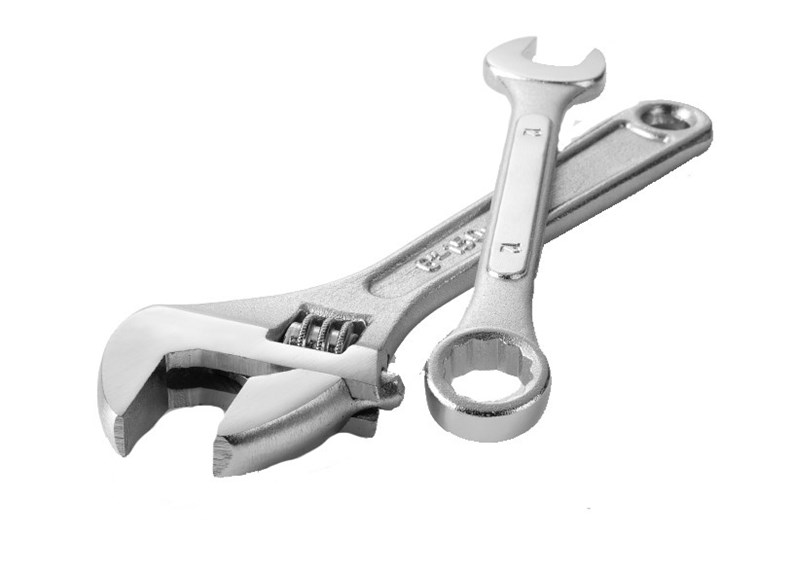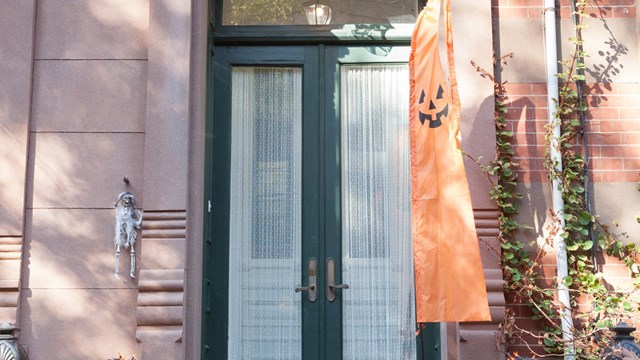Any board or manager that arranges for a contractor to come onto their property to do a project or render a service always hopes that the job will be done well, or that the service will be delivered exactly as expected. While the majority of contractors and service providers perform their jobs with no problem, meeting or even exceeding their customers' expectations, sometimes that's not the case. Jobs may be left unfinished, or may be done improperly—and that can result in serious problems for the HOA down the line.
Legal Protection
There are many legal safeguards in place to protect associations and their residents from defective workmanship, and to ensure that contractors are properly licensed and will do the work correctly. In New Jersey, thanks to a statutory warranty guaranteeing that development projects will be free from construction defects, associations have the right to sue developers for defective construction in all new condominium projects.
Another way HOAs are protected is through the Home Warranty and Builders' Registration Act. "[The act] protects new home owners, and has certain standards and guidelines of what things the builder is supposed to comply with," says attorney Greg Dyer of the Newark-based law firm of McCarter & English. "The regulations get very specific in identifying deficiencies and giving the homeowner certain warranty rights. There are certain items in a condominium unit that will only have one-year warranty, certain items get two years, and major features can have up to 10 years. It gives homeowners warranty rights."
That said, Dyer warns that if your association does make a claim on the warranty under the Builders' Act, you waive your right to sue the builder later in court for the problem— you'll have to abide by the decision of a government-appointed arbitrator.
"The warranty administrator will appoint an arbitrator to hear the complaint," says Dyer. "In one case I had, they ruled that the builder was at fault, but there was no money awarded. The builder just had to redo the work."
According to Dyer, that's often how these cases work out—with no money being awarded necessarily, but with the contractor redoing the work in question so it meets the Builders' Act requirements. "The warranty administrator would be responsible for the end result," says Dyer. "That's why the warranty. If a builder skips town, then in New Jersey there is a state-administered fund that covers that."
Builders and contractors also have a responsibility under the act as well—all New Jersey construction contractors must now register under the Builders' Act or be faced with a fine.
According to Barbara Straczynski, director of communications for the New Jersey State Bar Foundation, "If a builder fails to register under the New Home Warranty and Builders' Registration Act, they're subject to a penalty of up to $2,000 for each offense. The penalties are enforced and collected by the commissioner of the Department of Community Affairs."
If a case arises where a negligent builder is no longer in business and is unavailable to perform the warranty work and did not maintain warranty insurance, the homeowner may seek the same relief under the warranty from the state's Department of Community Affairs (DCA), Bureau of Homeowner Protection.
HICRA in Action
Another vital part of any HOA's arsenal against faulty construction is the Home Improvement Contractors Registration Act —HICRA for short—which was recently updated to give associations more protection. The Home Improvement Contractor's Registration Act took effect on January 1, 2006 and amended the Consumer Fraud Act to establish a new registration program for home improvement contractors who engage in the business of selling or making home improvements in the state of New Jersey.
"Anyone who does work related to the remodeling, altering, painting, repairing, renovating, restoring, demolishing or modernizing of a residential property is covered under HICRA," says Kimberly Ricketts, director of the New Jersey Division of Consumer Affairs, which monitors contractor licensing. "Licensed master plumbers, electricians, locksmiths and burglar and fire alarm technicians do not need to license as HICs unless they do work outside their professions."
Consumer Affairs estimates that there are at least 25,000 contractors working in the state that are required to be registered under HICRA. However, full-time employees of co-ops and homeowners associations who make improvements and repairs as part of their regular jobs—such as handymen, superintendents, or permanent maintenance staff—are specifically exempted from having to register.
"The act prohibits municipalities from issuing construction permits for home improvements to any contractor not registered under the act," says Ricketts. "The DCA is also engaged in an ongoing, extensive campaign to educate municipal officials about the registration requirements."
The registration form required for each trade— whether it be a plumber, architect, landscaper, pest control expert, or so forth—can be found on the Consumer Affairs website at www.njconsumeraffairs.gov.
The Right Guy for the Job
No matter what the field or profession, when hiring a general contractor, it's vital for HOA managers and boards to check out their credentials and also use someone who is properly licensed.
"If you live in a townhouse or high-rise condominium building with four or more units, only a certified, licensed building contractor or general contractor is permitted to perform remodeling work," says Ron Ridgeway, owner of Tri-State Remodeling in Delaware, and who regularly services New Jersey condos. "A residential contractor would be operating outside of his license, so that's not allowed."
Ridgeway also suggests that you use your contractor exclusively for the job they are trained and licensed for. For things such as carpentry, drywall, glazing, aluminum, plumbing, electrical, mechanical, roofing, and so forth, your hired professionals should only do the type of work their license specifies.
Yet even with all the safeguards and regulations in place, plenty still goes wrong—people all over the state are constantly battling with their contractors.
"Home improvement complaints were the number-one complaint category in 2005," says Ricketts. "Consumer Affairs received 3,137 consumer complaints related to home improvements— that's 14 percent of all complaints we received."
There is no recovery fund to reimburse victims of unlicensed home improvement contractors. There have also been no fines assessed since the law took effect on January 1 of this year. To avoid such hassles and financial problems, associations can check to see if someone is licensed in the searchable licensee database, also located on the DCA website at www.njconsumeraffairs.gov. It is searchable by name and by town. Consumers within New Jersey also can call 1-888-656-6225.
Improving Measures
According to Consumer Affairs, the term "home improvement" is defined as, "the remodeling, altering, painting, repairing, renovating, restoring, moving, demolishing, or modernizing of residential or noncommercial property or the making of additions thereto."
The DCA also notes that "home improvement" also includes, but is not limited to, the construction, installation, replacement, improvement, or repair of driveways, sidewalks, swimming pools, terraces, patios, landscaping, fences, porches, windows, doors, cabinets, kitchens, bathrooms, garages, basements and basement waterproofing, fire protection devices, security protection devices, central heating and air conditioning equipment, water softeners, heaters, and purifiers, solar heating or water systems, insulation installation, siding, wall-to-wall carpeting or attached or inlaid floor coverings, and other changes, repairs, or improvements made in or on, attached to or forming a part of the residential or non-commercial property, but does not include the construction of a new residence. The term extends to the conversion of existing commercial structures into residential or noncommercial property and includes any of the above activities performed under emergency conditions.
When getting work done, you should be able to speak comfortably and frankly with your contractor. This is important to avoid conflicts and confrontations as the job progresses. Also, be sure you understand the difference between a proposed quote and a proposed estimate. A proposed quote is a loose, informal projection of how much the job could cost in the end—a proposed estimate is a more formal work-up of the total.
Important Issues and Questions to Ask
It's of paramount importance that any contractor your HOA hires carries general liability insurance. This insurance will protect the property in the event that damage is caused by the contractor —or anyone working for him or her.
"The insurance company will pay for the cost of replacing and/or repairing any damage that occurs," says Ridgeway. "Anyone can say they are insured—you have to make sure the contractor can prove it by having their insurance company fax or mail to you a certified copy of his insurance with you named as the certificate holder."
It never hurts to ask for references either.
Before hiring any contractor, there are certain things that you should always check on in addition to verifying their license and insurance coverage.
According to Ridgeway, "Some important things to ask are: Will the work follow a schedule? Who cleans up after the job is concluded? What is the schedule for payments to be made? It is important to understand what role in the work—if any—you are agreeing to. If the contractor agrees to clean up during, or after the work, the contract should state so. It should also state the extent of cleaning to be done."
Other things to talk about are what happens if you change your mind about something during the process, whether the contractor guarantees all materials, and who is responsible for getting the required permits.
The last issue is fairly straightforward. "Have the contractor acquire any permits required to finish the job," Ridgeway says. "This causes him to be financially responsible for any work that fails to meet the minimum code in the state."
In Conclusion
Despite all the protective measures in place, HOA boards and managers still need to be smart when hiring a contractor to do work on any type of project. According to the experts, the smartest way to protect yourself is with a written contract with your contractor— and don't give the contractor the final check until you're completely satisfied.
Keith Loria is a freelance writer and a frequent contributor to The New Jersey Cooperator.







Comments
Leave a Comment